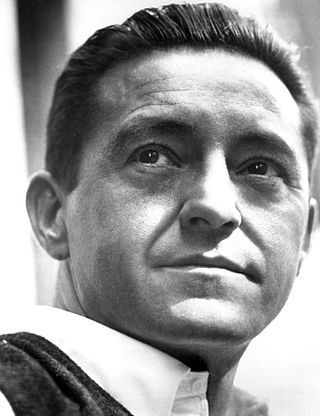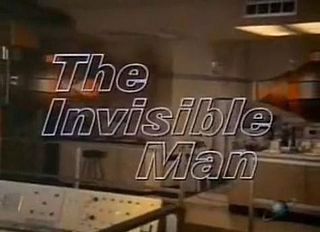
Where on Earth Is Carmen Sandiego? is an American live action/animated television series based on the series of computer games. The show was produced by DIC Productions L.P. and originally aired from 1994 to 1999, on Saturday mornings during FOX's Fox Kids Network block. Reruns aired on the Qubo television network from June 9, 2012 to May 26, 2018.

Courage the Cowardly Dog is an American animated comedy horror television series created by John R. Dilworth for Cartoon Network. It was produced by Dilworth's animation studio, Stretch Films. The titular character is a dog who lives with an elderly couple in a farmhouse in the middle of Nowhere, a fictional town in Kansas. In each episode, the trio is thrown into bizarre, frequently disturbing, and often paranormal or supernatural adventures. The series is known for its dark, surreal humor and atmosphere.

McCloud is an American police drama television series created by Herman Miller, that aired on NBC from September 16, 1970, to April 17, 1977. The series starred Dennis Weaver, and for six of its seven years as part of the NBC Mystery Movie rotating wheel series that was produced for the network by Universal Television. The show was centered on Deputy Marshal Sam McCloud of the small western town of Taos, New Mexico, who was on loan to the metropolitan New York City Police Department (NYPD) as a special investigator.

McMillan & Wife is an American police procedural television series that aired on NBC from September 17, 1971, to April 24, 1977. Starring Rock Hudson and Susan Saint James in the title roles, the series premiered in episodes as part of Universal Television's wheel series NBC Mystery Movie, in rotation with Columbo and McCloud. Initially airing on Wednesday night, the original lineup was shifted to Sundays in the second season, where it aired for the rest of its run. For the final season, known as McMillan, numerous changes were made that included killing off St. James' character of Sally McMillan.

21 Jump Street is an American police procedural television series that aired on the Fox network and in first-run syndication from April 12, 1987 to April 27, 1991, running for 103 episodes. The series focuses on a squad of youthful-looking undercover police officers investigating crimes in schools, gangs, and other teenage venues. It was originally going to be titled Jump Street Chapel, after the deconsecrated church building in which the unit has its headquarters, but was changed at Fox's request so as not to mislead viewers into thinking it was a religious program.

That Girl is an American TV series sitcom that ran on ABC from September 8, 1966, to March 19, 1971. It starred Marlo Thomas as the title character, Ann Marie, an aspiring actress who moves from her hometown of Brewster, New York, to try to make it big in New York City. Ann has to take a number of offbeat temp jobs to support herself in between her various auditions and bit parts. It was one of the first sitcoms to focus on an unmarried woman who was not a domestic or living with her parents, a forerunner of The Mary Tyler Moore Show.

Susan Saint James is an American actress and activist, most widely known for her work in television during the 1960s, 1970s and 1980s, especially the detective series McMillan & Wife (1971–1976) and the sitcom Kate & Allie (1984–1989).

Love, American Style is an anthology comedy television series that aired on ABC from 1969 to 1974. The series was produced by Paramount Television. During the 1971–72 and 1972–73 seasons, it was a part of ABC's Friday primetime lineup that included The Brady Bunch, The Partridge Family, Room 222, and The Odd Couple. It featured some of the earliest work of future stars Diane Keaton, Sally Struthers, Albert Brooks, and Harrison Ford. Room 222 star Karen Valentine appeared in four episodes. Brady Bunch star Ann B. Davis and The Partridge Family star Dave Madden each appeared in two episodes.

Hart to Hart is an American mystery television series that premiered on August 25, 1979, on ABC. The show stars Robert Wagner and Stefanie Powers as Jonathan and Jennifer Hart, respectively, a wealthy couple who lead a glamorous jetset lifestyle and regularly find themselves working as unpaid detectives in order to solve crimes in which they become embroiled. The series was created by novelist and television writer Sidney Sheldon. The series ended after five seasons on May 22, 1984, but was followed by eight made-for-television movies, from 1993 to 1996.

Crime Story is an American crime drama television series, created by Chuck Adamson and Gustave Reininger and produced by Michael Mann, that aired on NBC, where it ran for two seasons from September 18, 1986, to May 10, 1988.

Diagnosis: Murder is an American comedy-mystery-medical crime drama television series starring Dick Van Dyke as Dr. Mark Sloan, a medical doctor who solves crimes with the help of his son Steve, a homicide detective played by Van Dyke's real-life son Barry. The series began as a spin-off of Jake and the Fatman, became a series of three television films, and then a weekly television series that debuted on CBS on October 29, 1993. Joyce Burditt wrote the episode in Jake and the Fatman and is listed here as the creator of the spin off series.

Edward Binns was an American actor. He had a wide-spanning career in film and television, often portraying competent, hard working and purposeful characters in his various roles. He is best known for his work in such acclaimed films as 12 Angry Men (1957), North by Northwest (1959), Judgment at Nuremberg (1961), Fail Safe (1964), The Americanization of Emily (1964), Patton (1970) and The Verdict (1982).

Father Dowling Mysteries, known as Father Dowling Investigates in the United Kingdom, is an American mystery television series first aired from January 20, 1989, to May 2, 1991. The series was preceded by the 1987 television movie Fatal Confession. NBC aired the first season, while ABC broadcast two additional seasons.

Malachi Throne was an American actor best known as Noah Bain on It Takes a Thief. He also had guest-starring roles on multiple television series, including Star Trek and Batman, and appeared in films and theater.

The Ellen Show is an American television sitcom created by and starring Ellen DeGeneres that was broadcast during the 2001–02 season on CBS, airing from September 24, 2001, to January 11, 2002. It also starred Cloris Leachman, Martin Mull, Kerri Kenney, Jim Gaffigan, and Emily Rutherfurd, with Diane Delano recurring.

Voyage to the Bottom of the Sea is a 1964–1968 American science fiction television series based on the 1961 film of the same name. Both were created by Irwin Allen, which enabled the film's sets, costumes, props, special effects models, and sometimes footage, to be used in the production of the television series. Voyage to the Bottom of the Sea was the first of Irwin Allen's four science fiction television series, and the longest-running. The show's theme was underwater adventure.

The Invisible Man, the second television series with this title, debuted in the US in 1975 on NBC and starred David McCallum as the scientist Daniel Westin and Melinda Fee as his wife, Dr. Kate Westin. The series was created by Harve Bennett. A pilot TV movie initially aired in May 1975 and was followed by a 12-episode series later that year. A TV tie-in novel based on the script of the pilot episode was written by Michael Jahn and published by Fawcett Gold Medal in 1975.

Dr. Kildare is an NBC medical drama television series which originally ran from September 28, 1961, until August 30, 1966, for a total of 191 episodes over five seasons. Produced by MGM Television, it was based on fictional doctor characters originally created by author Max Brand in the 1930s and previously used by MGM in a popular film series and radio drama. The TV series quickly achieved success and made a star of Richard Chamberlain, who played the title role. Dr. Kildare inspired or influenced many later TV shows dealing with the medical field. Dr. Kildare aired on NBC affiliate stations on Thursday nights at 8:30–9:30 p.m. until September 1965, when the timeslot was changed to Monday and Tuesday nights at 8:30–9:00 p.m. through the end of the show's run.

Lupin the 3rd Part I is a Japanese anime television series produced by Tokyo Movie. Part of the Lupin III franchise, it is the first anime television adaptation of the Lupin III manga series created by Monkey Punch. The series was originally broadcast as simply Lupin III on Yomiuri TV between October 24, 1971 and March 26, 1972. Among English-speaking fans, this series was commonly known as the "Green Jacket" series in reference to Lupin's outfit, but more recently it is now known as "the first Green Jacket" series because of the outfit's return in Part 6.





















